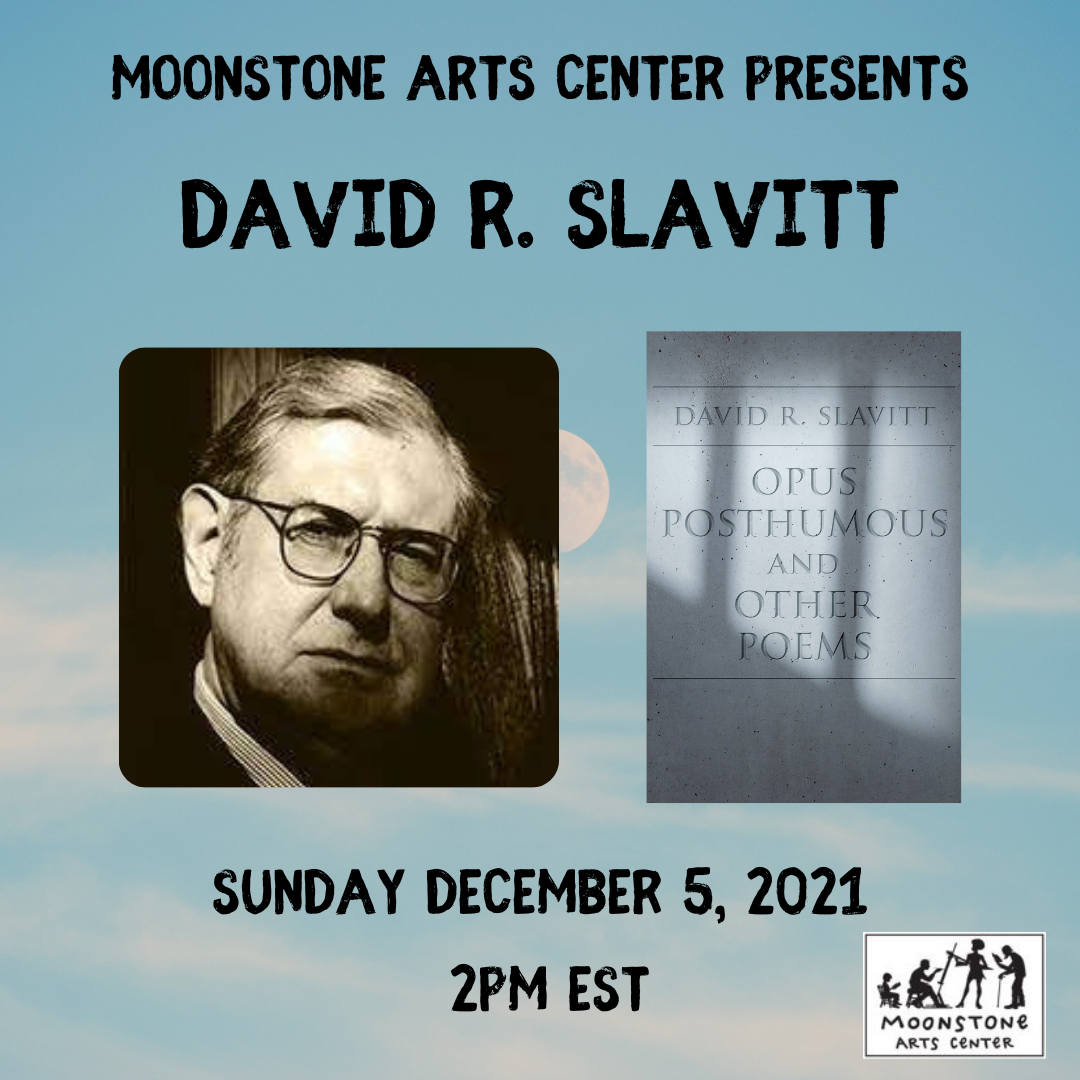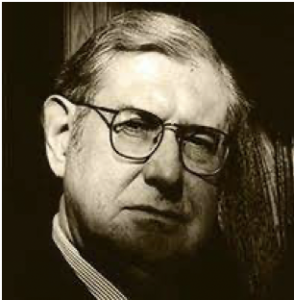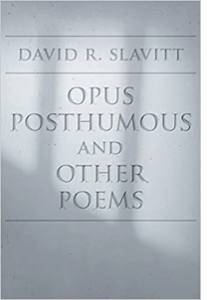Moonstone Presents:

- This event has passed.
Virtual Poetry Reading: David R. Slavitt
December 5, 2021 @ 2:00 pm – 3:00 pm

Registration Required, register at:
https://us02web.zoom.us/meeting/register/tZAodOuoqDIjH9L0yqjhYo_jLZzXejq83PCT
Virtual poetry reading with David R. Slavitt.

David R. Slavitt’s new book is Opus Posthumous and Other Poems (19.95, LSU Press 978-0807175668). He is a poet, novelist, critic, and author of more than
130 works of literature, in styles ranging from dramatic translations to pulp fiction. His new book, Opus Posthumous and Other Poems, Slavitt traverses Africa, India, Israel, and the America in which he finds himself, complete with visits to zoos, casinos, baseball fields, and cemeteries, as he searches for clues from which he might learn at least a little. He translates verse from Yiddish and Provençal and offers commentaries on received wisdom, everyday events, and the vagaries of existence. Slavitt’s awards, including a National Endowment for the Arts fellowship for translation, an award for literature from the American Academy and Institute of Arts and Letters, and a Rockefeller Foundation artist’s
residency. He currently lives in Cambridge, Massachusetts.

“The power of narrative to transform the events it recounts is among the most rewarding mysteries by which we can be absorbed. David Slavitt is among the most accomplished living practitioners of that art, in both prose and verse; his poems give us a pleasurable, beautiful way of m
editating on a bad time. We can’t ask much more of literature, and usually we get far less.” ― Henry Taylor in “Compulsory Figures: Essays on Recent American Poets”
“[Slavitt’s] range in forms, tones of voice, and subject matter is wide and various. He shows that he can handle all kinds of tough, tricky forms, and that he likes forms. He is perfectly at home in many rhythms, formal and syncopated. The language is brilliant, the range almost complete (from Ronald Firbank to Lenny Bruce and Dave Gardner). He can be witty or can crack wise as the occasion demands. Above all, he can think in verse, thus inviting the reader to use his intelligence, too.” ― George Garrett in “The Hollins Critic”